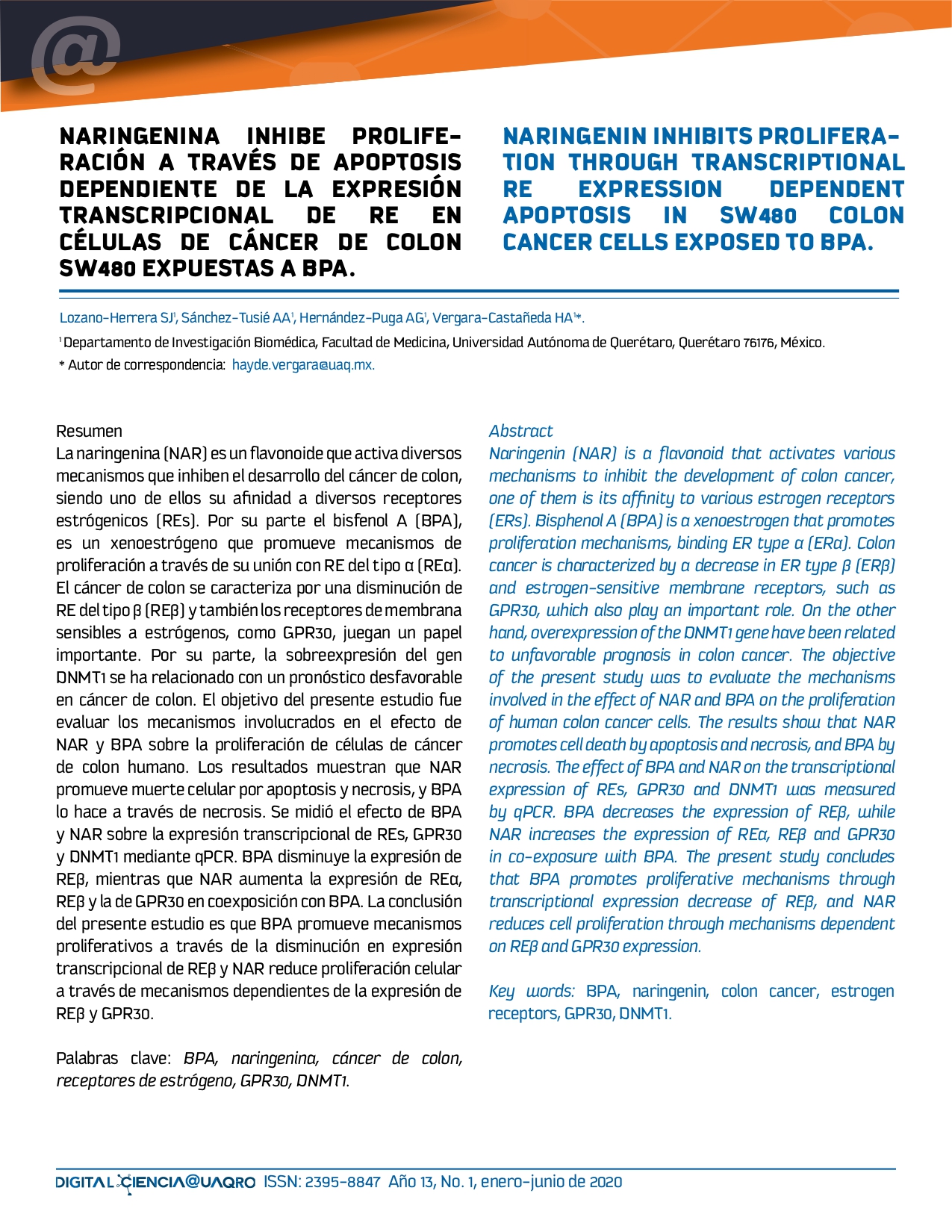Abstract
Naringenin (NAR) is a flavonoid that activates various mechanisms to inhibit the development of colon cancer, one of them is its affinity to various estrogen receptors (ERs). Bisphenol A (BPA) is a xenoestrogen that promotes proliferation mechanisms, binding ER type α (ERα). Colon cancer is characterized by a decrease in ER type β (ERβ) and estrogen-sensitive membrane receptors, such as GPR30, which also play an important role. On the other hand, overexpression of the DNMT1 gene have been related to unfavorable prognosis in colon cancer. The objective of the present study was to evaluate the mechanisms involved in the effect of NAR and BPA on the proliferation of human colon cancer cells. The results show that NAR promotes cell death by apoptosis and necrosis, and BPA by necrosis. The effect of BPA and NAR on the transcriptional expression of REs, GPR30 and DNMT1 was measured by qPCR. BPA decreases the expression of REβ, while NAR increases the expression of REα, REβ and GPR30 in co-exposure with BPA. The present study concludes that BPA promotes proliferative mechanisms through transcriptional expression decrease of REβ, and NAR reduces cell proliferation through mechanisms dependent on REβ and GPR30 expression.

This work is licensed under a Creative Commons Attribution-NonCommercial 4.0 International License.

